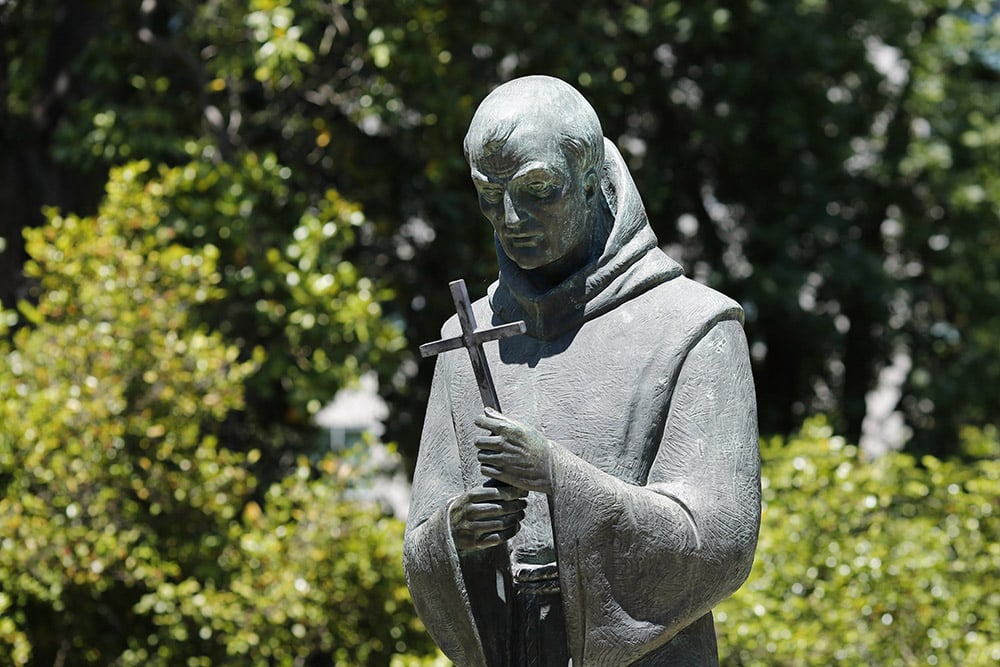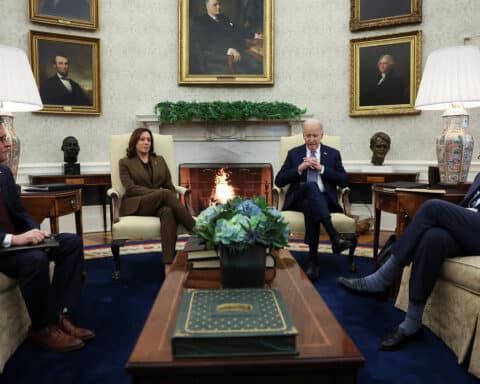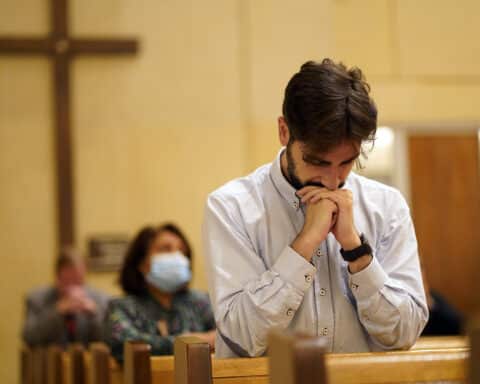A poll released by the Cato Institute toward the end of July found that 62% of Americans have political views that they are afraid to share because others might find them offensive. That’s nearly two thirds of our population that is living in fear of what might happen if they were to speak openly with others about what they believe.
For a society that professes to value tolerance to the point of making it the greatest of all goods, something, as the Bard might say, is rotten in the state — and soul — of our nation.
Of course, Catholics know a thing or two about being in the “cancel column.” Being simultaneously in favor of life and monogamous male-female marriage and against artificial contraception and reproductive technology doesn’t play well in today’s culture. At nearly every turn, Catholics are said to be bigoted, out of step, ignorant or simply of another time. And rightly or wrongly, we are all too used to staying quiet — or worse, to being pressured into the acceptable opinions of the day.
Now, as the country confronts another wave of racial strife, Catholic figures such as St. Junipero Serra, Flannery O’Connor and St. Damien of Molokai are in the crosshairs of cancel culture. Concurrently, and for unknown reasons, statues of the Blessed Mother and Christ himself are being vandalized, and churches are being targeted.
Despite these challenges, the mission of our Faith stands firm. We are called to preach the Gospel, no matter where it might lead, as so many martyrs have shown us over the course of history. This is our mission, our raison d’etre, and how we will, with the grace of God, forge our path to heaven.
This is, importantly, the real reason for freedom of speech. Far from being a divine right handed down by God, it has for Christians a single purpose: to speak the truth and to share that truth with the world. Calumny is not the purpose of free speech, and respect for the dignity of the human person must be central to any dialogue.
This is critical enough when encountering secular culture, but especially true when the dialogue is among members of our own faith. If Christians know what it means to be canceled, why do we seem so keen on canceling each other? The toxicity spewed by many in the Church — especially on social media and on certain websites — is both shocking and devastating. It’s one thing to be canceled by the “world”; it is another altogether to be dismissed by those who profess to share the same faith — a faith that professes to uphold both charity and the dignity of others at its very core.
At the same time, our cancel culture is slowly eroding the ability to grow and develop as a human being. If we are reluctant to share our opinions with others, we are less able to wrestle with complex issues, to form our consciences, or to change. And we are unable to help others to do the same. The Church encourages us to learn and to think, with the ultimate goal of coming to the truth, as our Lord and Savior Jesus Christ taught us. And while no amount of canceling can change that, without the ability freely to converse without running into the threat of a Twitter mob, our job of evangelization is made all the more difficult.
Despite its trendiness, “canceling” isn’t a phenomenon particular to this year or even this era. Recall how 2,000 years ago a mob clamored for the crucifixion of a man they considered a danger because of his radical call to love. In the last year, reported Open Doors USA, more than 260 million of his followers have been living in parts of the world that experience high levels of persecution, and nearly 3,000 were killed for their beliefs.
The cancelation of Jesus Christ, though, bore fruit in a faith that continues to proclaim his words, his example and his very self as the way, the truth and the life. As we navigate the challenges of our cancel culture, may that thought be a comfort to us all.
Our Sunday Visitor Editorial Board: Gretchen R. Crowe, Scott P. Richert, Scott Warden, York Young





